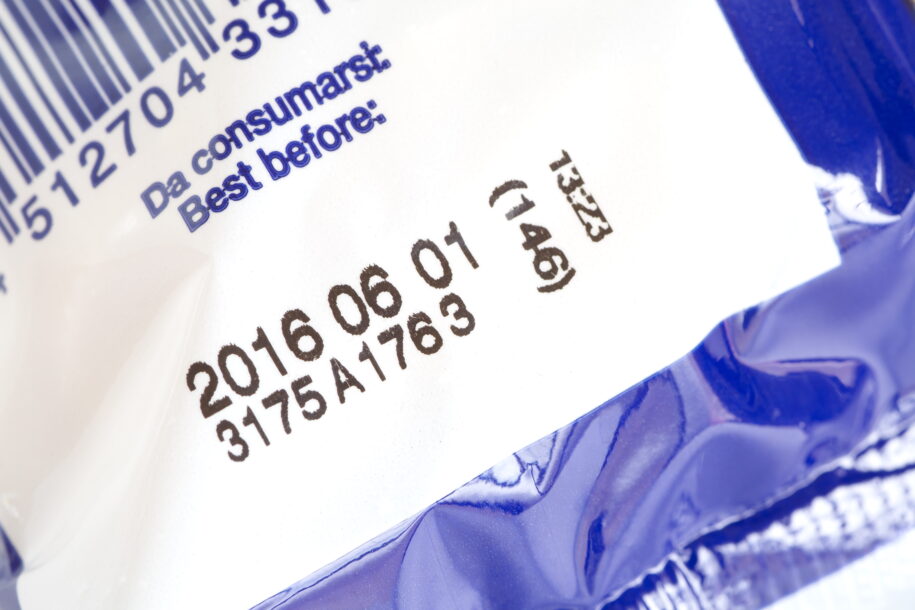When it comes to reducing misconceptions about food waste and expiration dates, understanding the ins and outs of food labeling is critical. Everyone knows the environmental and social impacts that an inefficient food system produces, and one of the key aspects of addressing this issue is learning to re-evaluate our perceptions of food expiration dates.
In this blog, we’ll explore the nature of food waste, look at strategies to reduce it and go over the basics of food labels and how understanding expiration date misconceptions can be crucial to cutting down on food waste.
What is Food Waste?
Food waste refers to the discarding of food that is still fit for consumption. This waste can occur at any stage of the food supply chain, from production to consumption. The causes are numerous, ranging from overproduction and inefficient storage to consumer behavior and overly strict sell-by dates. The effects of food waste are not only economic, but they also have a substantial environmental impact, contributing to greenhouse gas emissions and the unnecessary use of land and water resources.
How to Reduce Food Waste
Reducing food waste in the food industry requires a multifaceted approach, including:
Efficient Inventory Management
- Implementing advanced tracking systems helps in monitoring inventory levels accurately, preventing overstocking, and reducing spoilage.
- Demand Forecasting: Utilizing data analytics to predict customer demand more accurately can help in ordering and preparing food more efficiently.
Improved Food Storage and Preservation Techniques
- Implementing the right storage conditions for different types of food can significantly extend their shelf life.
- Preservation Innovations: Embracing new technologies like vacuum packaging, modified atmosphere packaging (MAP), and blast chilling can help preserve food for longer periods.
Waste Auditing
- Conducting regular waste audits can help identify the key areas where waste is generated and the potential for reduction.
- Actionable Insights: Using audit results to make informed decisions and changes in operations can significantly cut down on waste.
Redistribution of Surplus Food
- Partnering with local charities to donate surplus food can help feed the needy and reduce waste.
- Secondary Markets: Selling surplus food at discounted prices to secondary markets or through apps that connect businesses with consumers looking for discounts.
Understanding the Basics of Food Labels
Food labels are key to understanding product life, but they are often misinterpreted. In order to cut back on food waste due to expiration dates, let’s demystify the common labels:
Best If Used Before: This label indicates the date until which the product will maintain its optimal quality and flavor. The food is still safe to consume after this date, but it may not be at its peak quality.
Sell By: This date tells the store how long to display the product for sale. It’s helpful for inventory management. Consumers can still use the product after this date if it has been stored properly.
Use By: This is the last date recommended for the use of the product while at peak quality. It is not a safety date, except when used on infant formula. Understanding these labels can prevent unnecessary food waste due to misconceptions about food safety.
The Important Role of Bulk Food Brokers
For anyone wondering what happens to expired food in supermarkets, the truth lies in the business’s relationship with discount food brokers, as these brokers play a pivotal role in mitigating food waste, particularly in the context of food label misconceptions. Closeout food buyers have the capacity to purchase food items in large quantities that are close to or past their “Best Before,” “Sell By,” or “Use By” dates.
By understanding that these labels often indicate peak quality rather than food safety, bulk food brokers can safely re-sell these products that might otherwise be discarded, helping not only to reduce food waste but also creating an opportunity for cost-effective purchasing.
If you’d like to play a critical role in creating a more sustainable and efficient food system, reach out to Marvell Foods to experience the cost savings and resource optimization that come with partnering with one of the most trusted bulk food brokers in the country!

